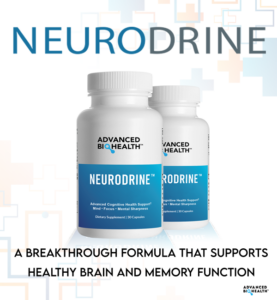What is the difference between alzheimer’s and dementia?

Alzheimer’s disease and dementia are often used interchangeably, but there is actually a big difference between the two conditions. Alzheimer’s disease is a specific type of dementia that affects memory, thinking, and behavior. Dementia, on the other hand, is an umbrella term that encompasses a range of symptoms associated with cognitive decline.
Alzheimer’s disease
Alzheimer’s disease is a type of dementia that causes problems with memory, thinking and behavior. Symptoms usually develop slowly and get worse over time, becoming severe enough to interfere with daily tasks.
Although Alzheimer’s disease is the most common form of dementia, not all dementias are Alzheimer’s. Dementia is an umbrella term used to describe a group of symptoms that negatively impact cognitive functioning. Other types of dementia include Lewy body dementia, frontotemporal dementia and vascular dementia.
If you’re noticing changes in your own memory or thinking abilities, or you’re concerned about a loved one who is exhibiting signs of dementia, it’s important to see a doctor for an accurate diagnosis. Early diagnosis and treatment can help slow the progression of the disease and improve quality of life.
Dementia
When it comes to discussing dementia, it’s important to understand that there is a difference between Alzheimer’s and dementia. Dementia is an umbrella term that includes various degenerative diseases that lead to cognitive decline and impairment. Alzheimer’s, on the other hand, is the most common form of dementia.
That being said, it’s important to note that not all cases of dementia are Alzheimer’s. In fact, there are many different types of dementia, all with different causes and symptoms. However, Alzheimer’s is by far the most well-known and researched form of the disease.
While the two terms are often used interchangeably, it’s important to remember that they are not the same thing. If you or a loved one is dealing with cognitive decline, it’s important to speak with a doctor to get a proper diagnosis.
The difference between Alzheimer’s and dementia
There is a lot of confusion about the difference between Alzheimer’s and dementia. Dementia is an overall term for symptoms that impact memory, performance of daily activities, and communication abilities. Alzheimer’s is the most common type of dementia, but there are other types as well.
Alzheimer’s specifically refers to a deterioration of the brain due to abnormal protein deposits. This causes problems with memory, thinking, and behavior. Dementia, on the other hand, can be caused by a number of different things including Alzheimer’s, strokes, head injuries, and more.
It’s important to understand the difference between these two conditions because they require different treatments. If you or a loved one is experiencing memory loss or other cognitive difficulties, it’s important to see a doctor to get a proper diagnosis.
Causes of Alzheimer’s and dementia
There are many possible causes of Alzheimer’s and dementia, but the most likely cause is age-related. As people get older, they are more likely to experience cognitive decline and memory problems. Other potential causes include head injuries, stroke, and chronic health conditions such as diabetes or hypertension.
Symptoms of Alzheimer’s and dementia
There are many similarities between Alzheimer’s and dementia, as they are both degenerative diseases that lead to decline in cognitive function. However, there are also some important differences between the two conditions.
One of the major differences is that Alzheimer’s disease specifically affects the hippocampus, which is the part of the brain responsible for forming new memories. Dementia, on the other hand, can affect any number of brain regions and lead to problems with memory, executive function, language, and visuospatial skills.
Another key difference is that Alzheimer’s disease progresses slowly and steadily, while dementia can have more sudden onset and fluctuations in symptoms. Additionally, dementia is often accompanied by other physical symptoms such as changes in mood and behavior, whereas Alzheimer’s typically is not.
Ultimately, only a qualified medical professional can give a definitive diagnosis of either Alzheimer’s or dementia. However, understanding the symptoms of each condition can help to better distinguish between them.
Treatment for Alzheimer’s and dementia
There is currently no cure for Alzheimer’s or dementia. However, there are treatments available that can help to slow the progression of the diseases and improve the quality of life for those affected.
The most common treatment for Alzheimer’s is cholinesterase inhibitors. These drugs work by helping to preserve the levels of a chemical called acetylcholine in the brain. Acetylcholine is involved in memory and thinking, and so by preserving its levels, cholinesterase inhibitors can help to slow the progression of Alzheimer’s.
There are also a number of other treatments that can be used to manage the symptoms of Alzheimer’s and dementia, including medications to help with sleep, depression, anxiety, and agitation. In addition, strategies such as environmental changes, cognitive training, and social support can also be helpful.
Prevention of Alzheimer’s and dementia
There is no known cure for Alzheimer’s or dementia, but there are things that can be done to prevent them. One of the most important things you can do is to stay mentally and physically active. Research has shown that people who engage in activities like reading, puzzles, and socializing have a lower risk of developing Alzheimer’s or dementia.
You can also help prevent Alzheimer’s or dementia by eating a healthy diet and maintaining a healthy weight. Eating plenty of fruits, vegetables, and whole grains has been linked with a lower risk of Alzheimer’s and dementia. And staying at a healthy weight can help reduce your risk as well.
Finally, it’s important to keep your mind and body healthy as you age. Regular exercise, not smoking, and keeping your cholesterol and blood pressure under control can all help reduce your risk of Alzheimer’s or dementia.
Conclusion
Although Alzheimer’s and dementia are often used interchangeably, there is a big difference between the two. Alzheimer’s disease is a specific type of dementia that causes memory loss and impaired thinking. Dementia, on the other hand, is an umbrella term that describes a range of symptoms associated with cognitive decline. So while all cases of dementia are serious, Alzheimer’s is the most serious form of the condition.






